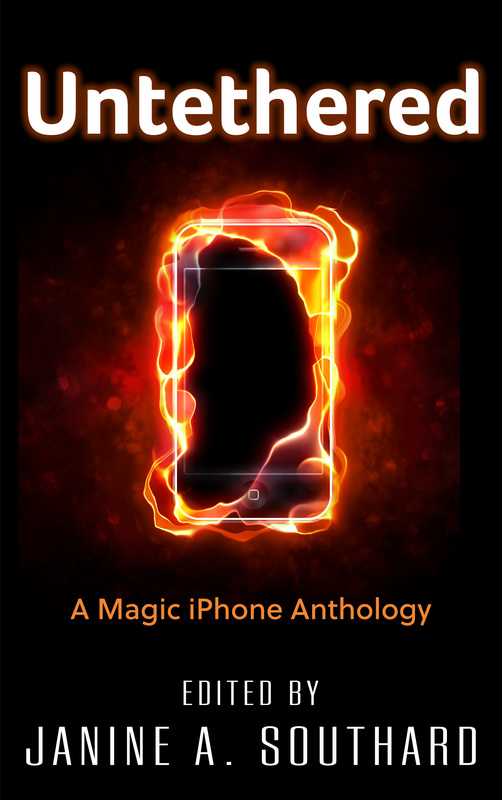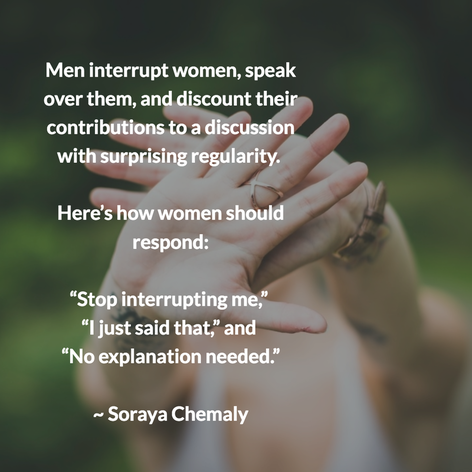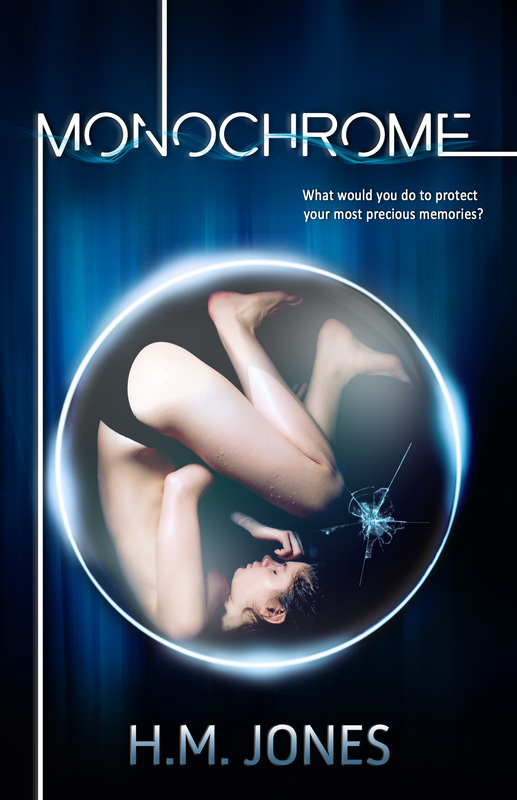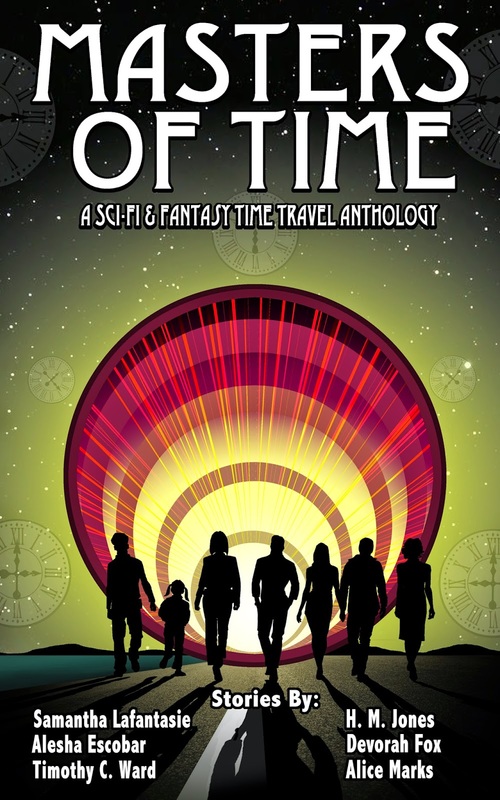|
I am thrilled to have one of my former editors as a guest blogger today, speaking about commonly confused pairs of words. This is such a great topic. Thanks for coming over, Wendy Garfinkle, Grammar Goddess. Identifying 9 Commonly Confused Pairs of WordsYou know how some words are so similar in spelling and/or pronunciation that you almost can’t help but get them confused on a regular basis? You sigh or mutter and reach for the dictionary...AGAIN...because you can’t seem to remember them no matter HOW MANY times you use them? Here are 9 pairs of those words. Almost without exception, each the words in each pair sound EXACTLY THE SAME. It can be frustrating trying to remember their differences, and spellcheck won’t help you. You’re going to need a good editor. ;-) • Immanent/Imminent/Eminent: When something is immanent, it’s inherent or inborn...like a bird that knows how to fly. Imminent refers to an incident that will occur at any moment; it’s impending...sunset is imminent. Eminent can refer to a person of high station or something prominent (such as a prominent nose). • Wreathe is a verb that means to adorn something or encircle it. A wreath is a noun – a circular band of flowers or foliage, such as one that can be placed on the head or hung on a door. • Feint is a noun that originated as a fencing term and refers to a movement made in order to deceive an opponent, possibly as a distraction from a more injurious blow. Faint is a familiar verb that means to lose consciousness. It also means lacking strength or brightness. • If you’re a writer, you’re familiar with stationery – writing paper or writing supplies. To be stationary, on the other hand, is to be unmoving; standing (or sitting) in place. • Capitol is often a proper noun – The Capitol Building in Washington, D.C.... as it refers to the specific building occupied by a state legislature). Capital refers to a city or town that is the official seat of government. This spelling is also used for a capital letter. • Both terms are adverbs, but altogether means wholly, entirely or completely, whereas all together refers to a group of people who act at the same time. • When something is tortuous, it is full of twists, turns or bends, such as a tortuous conversation or road. Torturous, on the other hand, refers to the act of torture or suffering; extreme pain. • To insolate something is to expose it to the sun, as in making sun tea. To insulate is to cover, or line something, such as using insulation in one’s attic to keep the heat from escaping during the winter. • When you want to secure or guarantee something, to keep it from harm, you want to ensure it. Insure means much the same thing – to guarantee against loss or harm, but usually refers to purchasing an insurance policy to protect the things you want to ensure. As you can see, relying on spellcheck to ensure that you’re using any one of these words in the correct context isn’t going to work. Other than insolate, which spellcheck doesn’t like for some reason, ALL of these words pass spelling and grammar inspection in a Word document. And you’ve probably noticed, some of the pairs – like ensure and insure – are not only similar in spelling, they’re also similar in meaning. So while it’s important to improve your grammar as a writer, don’t expect that you’re going to always get it right, every time. Give yourself a break. Hire an editor to check your grammar and usage. That’s what we’re here for...to support writers in ensuring their work is the best it can be. Even we editors use editors. While this is the type of knowledge we acquire and build upon, even we aren’t infallible. Are there any words – or pairs of words – that trip you up on a regular basis? Feel free to share them in the comments. About Wendy Garfinkle, Grammar Goddess
1 Comment
Hey readers! I wrote a slightly gross, slightly hilarious short story called "Nessa, Iggy & the Murky Toilet Selfie" for Untethered: A Magic iPhone Anthology. For fun, we are holding a few blogs on technology, iPhones and other interesting tidbits. Please read on to find out what six of the Untethered authors (including yours truly) thought might be the next big thing in technology. What Will the Next Big Thing in Technology Be?What might be the future of portable technology? In honor of the book release for Untethered: A Magic iPhone Anthology, six authors speculate. Untethered: A Magic iPhone Anthology is a fictional collection of twenty stories about the intersection of magic and tech, so these six authors have given the matter some thought. Many of them want to talk about watches, but have they really given the idea enough thought? You decide. Rhiannon Held: Health monitoring! Most of the functions seem distributed across many different devices at the moment, but some kind of all-in-one thingy that tracks activity, counts calories, monitors vitals, measures hormones, injects medications, calls paramedics... Diabetes and blood sugar and insulin is an obvious use, but what about less obvious ones, like depression and neurotransmitter levels? And I'm sure it would be marketed as the last word in weight loss. C.S. O’Cinneide: Televisions that grow legs and follow you around the house. Jon Lasser: Wearables such as watches seem to be the new thing. I don't think we've seen everything they can do just yet. While the Apple Watch seems to be an excellent fitness and communications device, with secondary use for authentication, I imagine we'll see as-yet-unanticipated ways of using wearables. I think the next frontier is emotional self-regulation: building on fitness functions to help users manage their moods and avoid unpleasant emotions and experiences. At the same time, the rebellion against portable technology is just getting started. Now that smartphones are ubiquitous, I expect more people will avoid them as a sort of cultural marker, signaling their importance by their refusal to engage with the minute-to-minute distractions technology can bring us. Jeremiah Reinmiller: That's an interesting question as usually the next big thing, will be something small. We've already seen smart watches add ease of use features, and Apple recently introduced wireless earbuds so the audio can be always connected. The next logical step would be in the visual components. Google glasses looked interesting, but never made a lot of progress, and if technology has shown us anything, it's that the next jump will be something further than we expect. I think it's going to be some kind of integrated contacts we can wear. If someone figures that out (a way to display phone output wirelessly to contact lenses) they're going to make a lot of money. A. Moritz: The next BIG thing will definitely be watches that can project a screen that can be manipulated by touch. They will be able to show us documents that we've created, pull up bus schedules/movie times/restaurant reviews from the internet...no more digging in your pocket to search on your phone! Anything that happens until then will be small to me ;P H.M. Jones: I’m not all that sure. I’m actually the sort of person who keeps a cheap, breakable phone because I tend to destroy my technology on accident. I sort of hope it’s a hover board. I really want a hover board. I know I’m too old, but…I’m gonna need to see a workable hover board soon. Want to see what these authors did with the concept of a magic iPhone? Pick up your copy of Untethered: a Magic iPhone Anthology in ebook or trade paperback today. Find it at Amazon.com, Nook, or wherever you prefer to grab your books. Extra Interest: Stevehen Warren shares “I have a yellow IPhone 5c. It didn’t really influence [my] story, but it did help in jotting down the rough draft...”  H.M. Jones is the NIEA Finalist and B.R.A.G Medallion honoree of Monochrome, a dark fantasy about the power of memories. Her short story "Nessa, Iggy and the Murky Toilet Selfie" is a fun, sardonic romp with a self proclaimed selfie queen. When not creating stories, she is taking care of two kids, three chickens and a silly mutt. She enjoys bookstore shopping, cosplaying and drinking tea. Visit her at www.hmjones.net, on Facebook H.M. Jones Writes and Twitter (@HMJonesWrites). It is my extreme pleasure to have Rachel Thompson, author of the bestselling Broken books, as a guest blogger. Rachel and I have many things in common. We are both authors (duh), both geek girls, and both advocates for women. Rachel is a voice of reason and intelligence when it comes to advocating. This piece is a great example of that. In this post, Rachel takes on the unenviable challenge of discussing interruption and sexism, what it means and even why it happens. Please read carefully before commenting because commenting without reading is akin to interrupting. Interrupting, as Rachel will explain, is often sexist, and is definitely not sexy. This is the Reason Interrupting is SexistMe: I wanted to share this piece I just wrote and… Him: Oh, you know what you should say? You should discuss how I made that hilarious comment about the Kobayashi Maru. You know, about the no-win scenario. Me: Well, you don’t even know what I wrote, or if that’s even relevant... Him: Oh, well, go ahead. I just didn’t want to forget. It’s a great line. Marriage Interruptus. Twenty-two years of it. I saw the red flag of trouble when we dated but you know, love and shit. Somehow, the Kobyashi Maru ended up quite relevant after all. One of many reasons he’s now my ex-husband. A minor reason, to be honest, but one that, over time, was indicative of larger issues: inability to listen, disrespect for my abilities and thoughts, money issues. Typical reasons marriages die. Nothing sexist about that…or was it? Sometimes it felt that way. Is Interrupting Sexist?Is the act of men interrupting women truly about sexism? Is that a stretch? If you’re a man, you might think so because it’s likely because you’ve been conditioned to talk over women, and probably haven’t given it a second thought. Or maybe you’re thinking, “Well, women interrupt, too!” And you’d be right. We do. Humans interrupt one another. But, at the same ratio in the same situations? Think about this: have you been on the receiving end of constantly being interrupted and mansplained to? Perhaps you have, in a work situation. If you’re in a position of leadership, you are likely used to people (male and female) deferring to your voice over theirs as a way to assert your power. In other words, you might interrupt and not even know you’re doing it. But we know. Is Interrupting About Mansplaining?Some would argue that my ex was unknowingly mired in ‘mansplaining’ mode (defined by the brilliant Rebecca Solnit in her essay “Men Explain Things To Me,” as that “intersection between overconfidence and cluelessness where some portion of that gender gets stuck”), and I wouldn’t disagree. I don’t believe my ex intended to be manipulative or hurtful – I believe he simply felt his opinion mattered more than mine in a way that (many, but not all) men do. In my corporate life, I had many male managers who constantly interrupted both the men and women they managed. It was the norm. The man I’m with now is interruption avoidant to the extreme – it’s something we’re working on with me and with my kids – we’ve all learned to interrupt, I believe, as a coping mechanism, as a way to be heard. This breaks my heart a little. Examples of Conversation Interruptus Two recent examples come to mind of egregious conversation interruptus: Kanye West and Taylor Swift at the 2009 VMAs, the video which has now been viewed almost 29,000,000 times as of this writing. West ran onstage, grabbed the mic and said, “Yo, Taylor, I’m really happy for you, I’mma let you finish but Beyoncé had one of the best videos of all time! One of the best videos of all time!” In his shockingly inappropriate fit of interrupting and ultimately, condescending mansplaining, it’s obvious Kanye was not happy for her. Even Beyoncé looked mortified. Another example is the recent first Presidential debate in late-September of this year. According to Vox.com, Trump interrupted Clinton 51 times during the debate, often with “petulant asides” while she spoke, such as “Not,” or “Wrong.” Clinton, on the other hand, interrupted Trump 17 times, often patiently waiting for him to finish his interruptions so she could continue her allotted time. Politics aside, because that is decidedly not the goal of this article, it’s interesting to note that Twitter exploded with women who related to being in that same position as Clinton (albeit in work situations). Key Interruption FactsLet’s take a look at these studies and facts (Source: Bitch Media):
“Men don’t just talk more in face-to-face conversations, but in our media conversations. According to a 2012 study by the OpEd Project, women write 20 percent of traditional opinion pieces, 33 percent of online opinion pieces, and 38 percent of college newspaper opinion pieces. Bylines on literary reviews and creative nonfiction also skew male, according to the annual VIDA count. And when it comes to coverage of politics, a 4th Estate analysis of 2012 election coverage showed women were vastly underquoted.” On Twitter, men are retweeted more often than women. This is from a 2012 study, so I’d love to see updated numbers, but it is interesting to note that the majority of Twitter users are women, yet men are retweeted more often Interruptus ResolutionsHow do we solve this disease of interruptus? Because it is a dis-ease, isn’t it? When we, at the receiving end are interrupted, we are not at ease; conversations become stilted, uncomfortable and awkward. Feelings are hurt, whether it’s in a personal or business situation. Do women need to be more like men? Do men need to be more like women? That’s not likely to happen on a grand behavioral scale, particularly if the perpetrators of the behavior are unaccepting that it exists (most men don’t believe sexism is real, but that’s an entirely different conversation for another day), or are unaware they are even behaving in this manner. So, what’s the answer? Maybe we need to meet somewhere in the middle. Noted feminist Soraya Chemaly believes women need to stop men from talking over us through the use of these ten little words every girl should learn:
Chemaly explains that girls are taught to be overly polite and active listeners in conversations, but men are not taught to socialize this way. As the parent of both a boy (age 11) and a girl (age 17), I’ve become very conscious of these words in dealing with men, and in teaching them to my children as well, because we all deserve to be heard. Or, perhaps, it’s not about interrupting so much as it is more about learning to listen, regardless of gender or role. According to mega-successful businessman, author, job placement expert, and millionaire Cash Nickerson (who is a heck of a nice guy), listening is a martial art. “Never, ever interrupt someone. It is the cardinal sin of listening.” I believe the resolution is pretty simple: it comes down to respect. Whether you are aware of it or not, reading non-verbal clues during conversations doesn’t take a genius. Clue in. Your voice is not the only voice. Interrupting someone is rude and it blocks effective communication. So, make a conscious choice and stop interrupting.
If you respect the people you are with, take the time to listen to them. Talking over someone is a true sign of disrespect, doesn’t win you any points in the Relationship Department, and ultimately, is a true no-win scenario. About Rachel Thompson Rachel Thompson is represented by literary agent Lisa Hagan, and is published by ShadowTeamsNYC. She is the author of the award-winning, bestselling Broken Places (one of IndieReader’s “Best of 2015” top books and 2015 Honorable Mention Winner in both the Los Angeles and the San Francisco Book Festivals), and the bestselling, multi award-winning Broken Pieces (as well as two additional humor books,A Walk In The Snark and Mancode: Exposed). Rachel’s work is also featured in several anthologies (see Books for details). She owns BadRedhead Media, creating effective social media and book marketing campaigns for authors. Her articles appear regularly in The Huffington Post,The San Francisco Book Review (BadRedhead Says…), Feminine Collective, IndieReader.com, 12Most.com, bitrebels.com, BookPromotion.com, and Self-Publishers Monthly, Not just an advocate for sexual abuse survivors, Rachel is the creator and founder of the hashtag phenomenon #MondayBlogs and the live weekly Twitter chats, #SexAbuseChat, co-hosted with certified therapist/survivor, Bobbi Parish (Tuesdays, 6pm PST/9pm EST), and#BookMarketingChat, co-hosted with author assistant Melissa Flickinger (Wednesdays, 6pm PST/9pm EST). She hates walks in the rain, running out of coffee, and coconut. She lives in California with her family. Connect with RachelAuthor Site: rachelintheoc.com
BadRedhead Media Site: badredheadmedia.com Twitter: @RachelintheOC Twitter (Business): @BadRedheadMedia Facebook: https://www.facebook.com/AuthorRachelThompson Facebook (Business): https://www.facebook.com/BadRedheadMedia Google+: https://plus.google.com/+RachelThompson/ Pinterest: http://www.pinterest.com/rachelintheoc/ Instagram: https://instagram.com/rachelintheoc/ LinkedIn: http://www.linkedin.com/pub/rachel-thompson/24/784/b95 |
AuthorH.M Jones is the author of B.R.A.G Medallion Honor and NIEA finalist book Monochrome, its prequel Fade to Blue, the Adela Darken Graphic Novellas, Al Ravien's Night, The Immortals series, and several short stories. Archives
December 2019
Categories
All
|
















 RSS Feed
RSS Feed
